The explosive "The King of Circus" was lost. Why is it difficult to break the musical film?

Hello, this is the second issue of our special column "jargon"
Special feature of 1905 film network As expected, the musical starring Hugh Jackman didn’t arouse much splash after it was released. Compared with its beautiful counterattack curve in the North American market, the "dream master" P.T. barnum failed to create a miracle in the mainland, and the box office of the film only closed at 50 million after five days of painting, which is really regrettable.

Of course, this is not the first time that mainland audiences have not bought musical films. Last year, despite its reputation, its final box office in the mainland was only 247 million. European and American musical films, as a kind of classic films, have always been "acclimatized" in the mainland. There seems to be no successful case of local musical films in China. The only film with a box office of over 100 million yuan can be traced back to that directed by Jay Chou in 2013 (with a cumulative box office of 120 million yuan).

What is the definition of musical? Why did the musicals, which sold well in North America, go to the mainland? Why is the development of local musical films in China blocked? We also try to find answers to all kinds of questions about musical films.
【Is it difficult for musical films to break the box office curse in the mainland?】
At present, the best-performing imported musical film in the mainland box office is (2017), which made a final box office of 590 million yuan in the mainland, but it is obvious whether the audience bought the song and dance or Disney and Big IP.
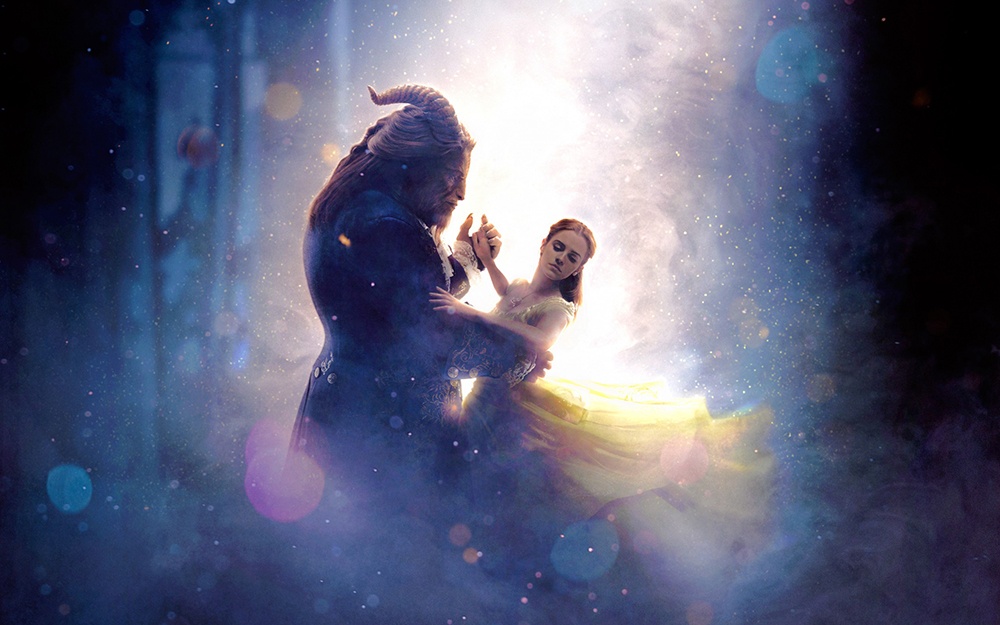
In the second place, la la land (2017), a well-known masterpiece with numerous awards, won 247 million RMB in the Mainland. Compared with the quality of the film, this achievement seems to be unsatisfactory. Followed by "The King of Circus" which is currently being released, the film won 54.82 million box office in six days, and the final box office is expected to stop before the 100 million mark.

《The Greatest Showman?"box office"
The box office of other imported musical films in the mainland can be described as bleak: (2013) the final box office was 63 million, (2011) the final box office was 13.98 million, (2011) the final box office was 3.97 million, (2003) the final box office was 3 million and (2015) the final box office was 2.25 million;
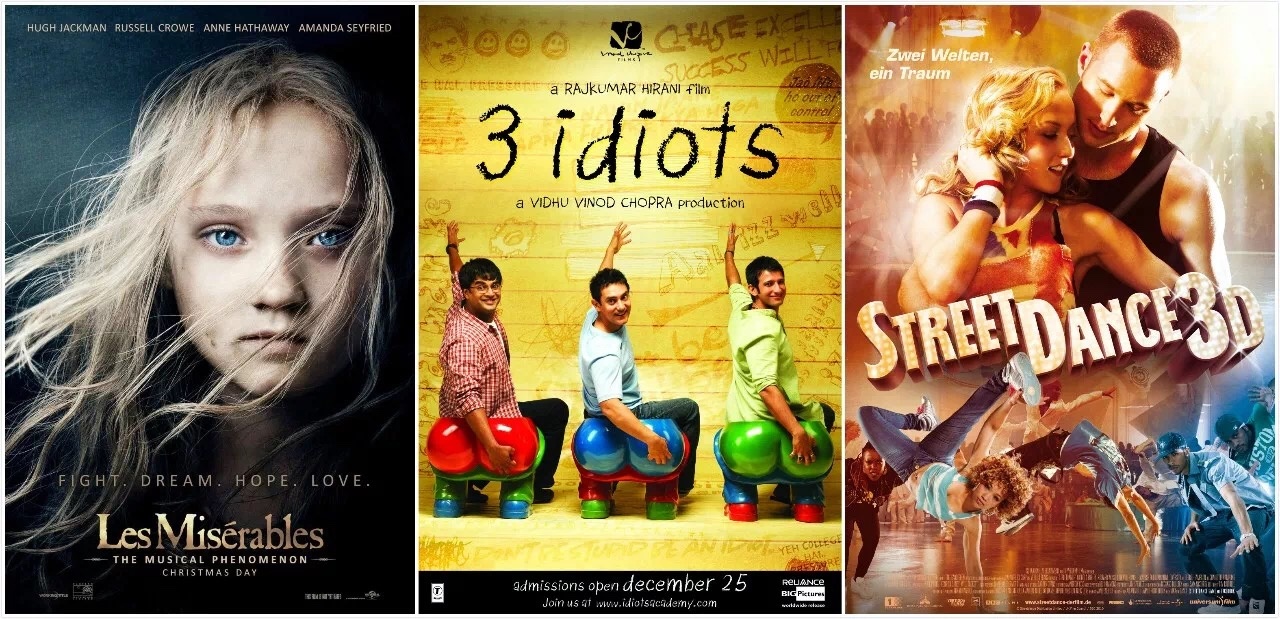
As for the achievements of Chinese musical films, they are not satisfactory: The cumulative box office of Love on the Rooftop (2013) was 120 million, that of 47.5 million, that of 30 million, that of 2005, and that of 2017 was less than 2 million, while that of China (2010) and (2014) were all less than one million.

There is no clear definition of musical film as action film and horror film.
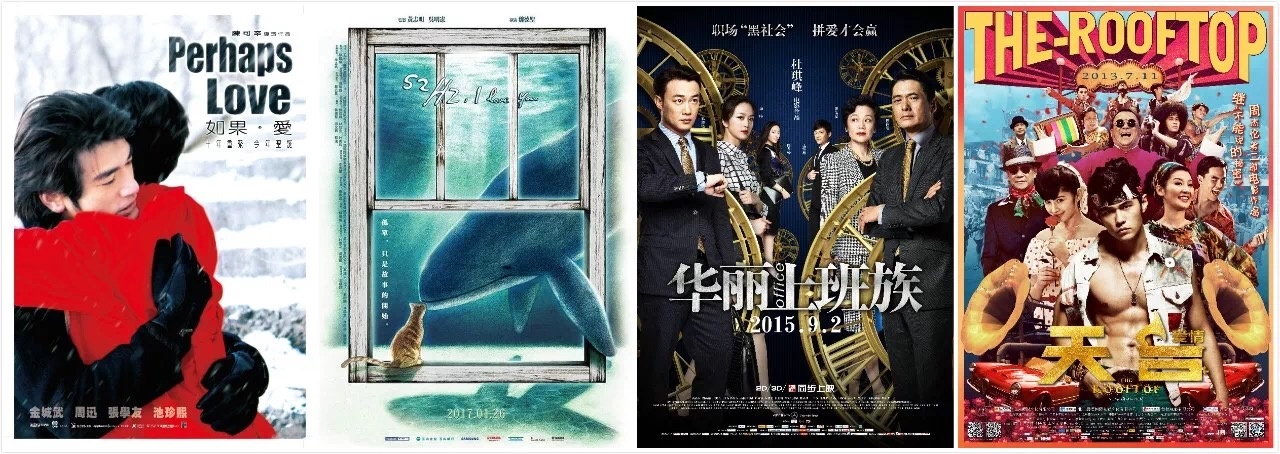
Baidu Encyclopedia defines musical films as: "A film composed of a large number of songs and dances. Musical films are films that record opera performances or are adapted from operas. Most of them are played by singers, who mainly rely on singing to portray characters and unfold plots." Strictly speaking, only this kind of film, which is born out of musicals and is narrated by songs and dances, can be called musical films.
But nowadays, people are used to referring to musical films (including biographies of musicians, musical stories, musicals, operas and musical films) as musical films. But even in a broad sense, there are still very few musical films in the domestic market that can be called by the audience.
【The road of butterfly change in European and American musical films】
Musical films are one of the most famous types in the film industry, and when it comes to this "imported product", we have to talk about the history of European and American musical films first. Mainly Hollywood musical films, European and American musical films have made brilliant achievements after nearly 40 years of development from the late 1920s to the 1960s.
However, with the rise of television and the decline of Hollywood’s large-scale studio system, the song-and-dance utopia, which was stylized and avoided social problems, began to decline in the 1970s. By the 1990s, the production of song-and-dance films had fallen sharply, and there were almost no representative films, so the production of song-and-dance films entered a recession. After the 21st century, the musical in 2001 regained its attention, and in 2002, it won the Oscar again after a lapse of 34 years.
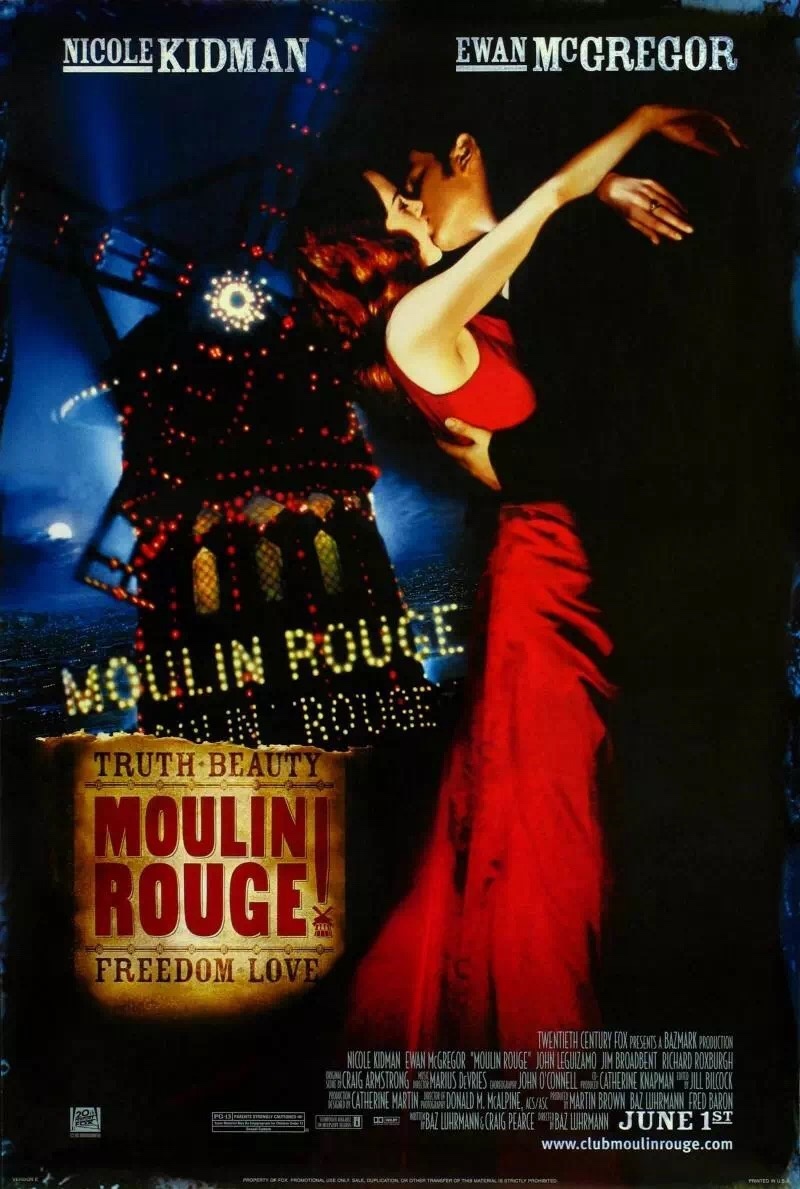
Since then, musical films have gradually recovered, and a number of musical films with their own styles and innovations have emerged, and many films have made sequels one after another. The creation of musical films has gradually begun to flourish again in the 21st century.
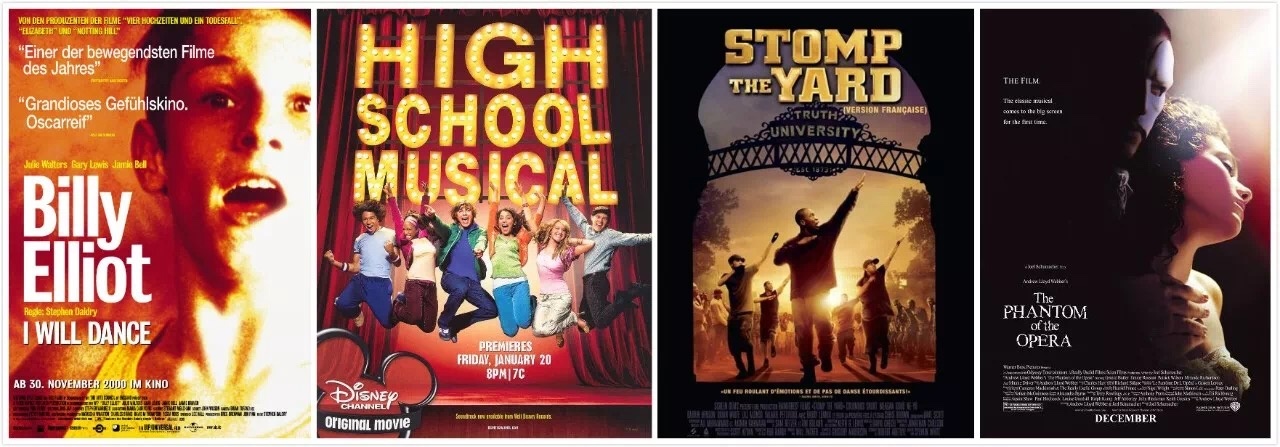
This prosperity not only refers to a breakthrough in the number of musical films, but also shows differences from previous musical films in the innovation of genre elements, narrative and theme expression of musical films and cultural orientation. Most of the classic musical films avoid talking about real problems, deliberately avoiding problems that plague social development, such as race and class.
Since the 21st century, with the opening of society and the diversified development of culture, many musical films have begun to face up to racial issues and draw fresh elements from black culture. Based on a true story starring Beyonce, the film sharply touches on the difficult situation that black music in the United States could not enter mainstream radio stations because of discrimination in the 1960s. It also focuses on the racial conflict between blacks and whites in the United States in the 1960 s; In 2015, the musical biopic also focused on the growth experience of the rap group N.W.A Different themes and diverse genres also cultivated a new generation of audience of song and dance/musical films.
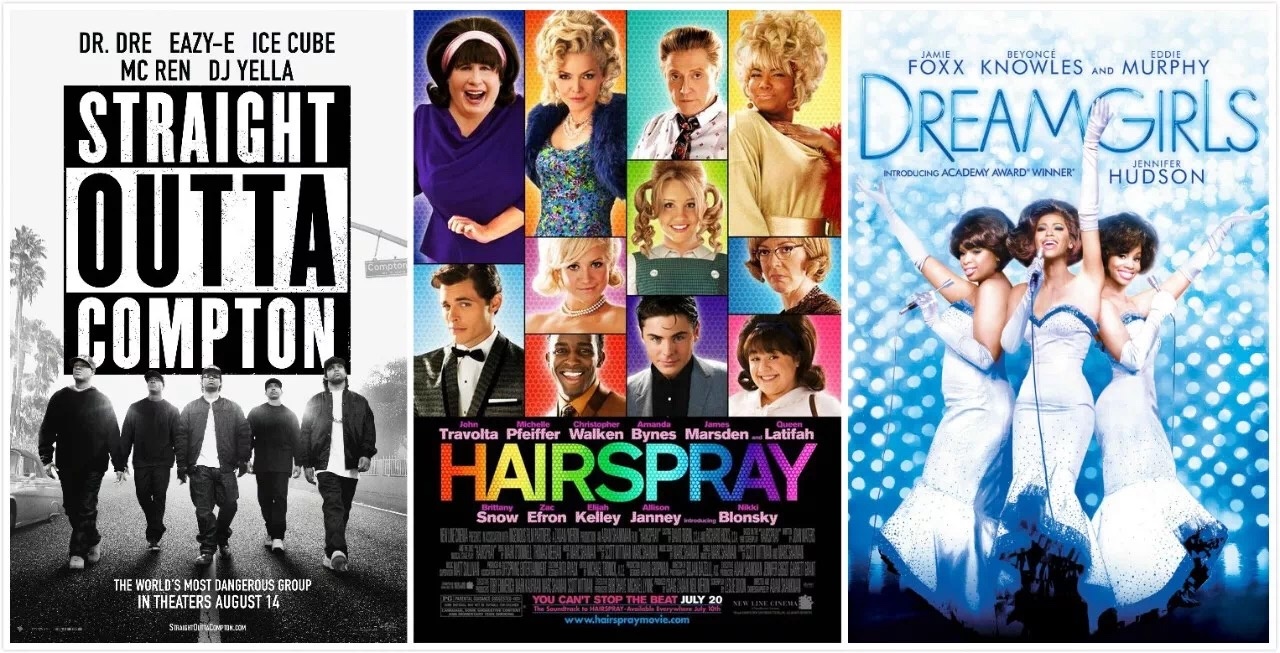
【There are no musicals in China? All wet!】
When was there a musical in China? In fact, it was there when the first Chinese film was born. Traditional Chinese opera film is a unique type of Chinese film. In 1905, Peking Opera films made by China people themselves started the localization of films in China.
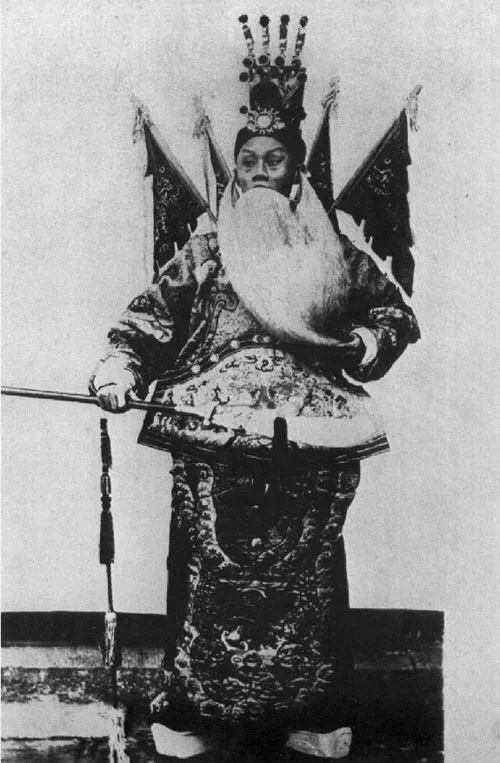
As the first film in China, Dingjun Mountain is a drama film. After that, Mei Lanfang, a Peking Opera artist, boldly explored and borrowed the advantages of Kunqu Opera and starred in the Kunqu Opera movie "A Dream in the Garden" (1960), which not only used feature film technology, but also fully retained the characteristics of stage performance.

Mei Lanfang’s photo with the movie queen mary pickford in the United States.
Fei Mu, the director, also explored the traditional Chinese opera films earlier, and made three traditional Chinese opera films successively (1937), (1941) and (1948). In 1950s, traditional Chinese opera films began to rise. In 1955, the film directed by Shi Hui was released in Hong Kong, which was a great success and attracted the attention of Hong Kong audiences and filmmakers.

Shaw Company took the lead in producing a large number of Huangmei films (1958), (1960) and (1963), which were all very successful in the market. Directed by Cui Xie and Chen Huaiai in 1960, he won the Best opera film Award in Hundred Flowers Award in 1962. At the same time,, and so on were the models of traditional Chinese opera films at that time. According to incomplete statistics, since the founding of People’s Republic of China (PRC), more than 300 traditional Chinese opera films have been filmed, involving more than 60 kinds of operas.
Since the 1980s, the social and cultural life has become increasingly rich, and the traditional Chinese opera films have suffered a certain impact, but until now, there are still many traditional Chinese opera films produced every year.

The newly edited Peking Opera film (2013) won the Best opera film Award in the 29th China Film Golden Rooster Award, and the Cantonese Opera film (2015) was adapted from the large-scale Cantonese opera classic "Legend of Lun Wenxu". In 2015, a 3D version of Peking Opera film appeared for the first time.
In addition, there are many musical films of ethnic minorities in China, but we can hardly see them in mainstream cinemas. Most of these musical films are broadcast through local TV media.
【Can musical films regain their popularity】
Zhong Jinwen, dean of the School of Literature and Journalism and Communication of the Central University for Nationalities and director of the China National Film and Television Research Center, believes that talking about whether a musical is a minority depends on the standards it refers to. Obviously, the above-mentioned traditional Chinese opera films and folk song and dance films are destined to belong to the minority in the current film market environment. Musical films in mainstream movies are often difficult to succeed. In recent years, Gorgeous Office Workers and 52 Hz, I Love You have not only been dismal at the box office, but also caused great controversy in word of mouth.
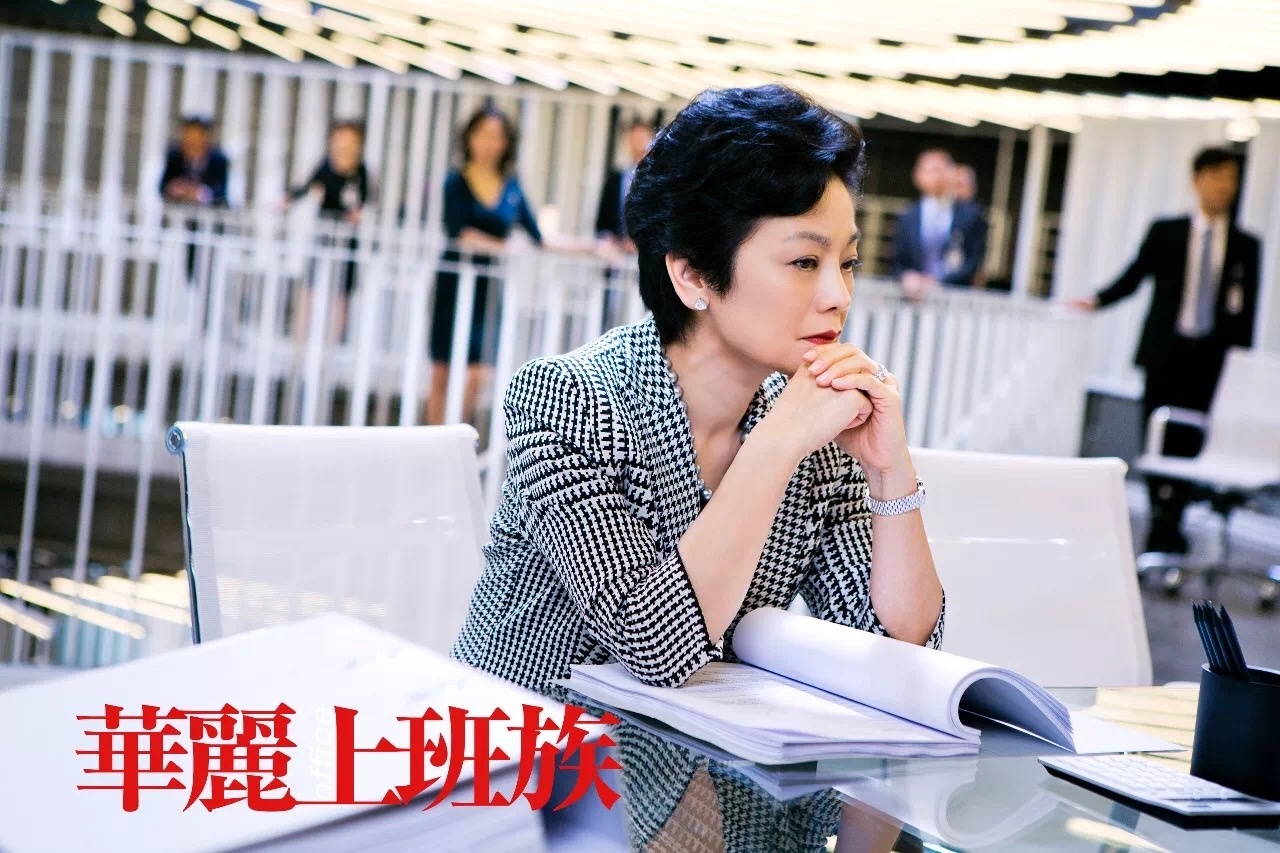
In the mainland, which lacks musical culture, the audience doesn’t know much about traditional musical films. Most people have little musical influence since childhood, and many people can’t understand the plot of "singing as they play". When the singing competition was hot, The Voice of China tried to imitate Glee’s column drama My Youth is Eight Degrees Higher, but most viewers thought it was "accepting incompetence".

"My Youth is Eight Degrees Higher" is not recognized by the public.
In addition, in mainland cinemas, the number of musical films released each year is very limited, and it is not easy for the audience to cultivate their interest in this type. For investors, musical is not a good choice.
Yang Yan, a senior producer and a member of the Film Critics Association, said that she rarely encountered musical scripts in her career. "The narrative of musical is confined by the form. It is necessary to condense the story and match it with appropriate dance and genre. When the audience watches it, there will be a sense of alienation, because everyone doesn’t sing and dance without saying a word. It is different from the viewing habits of China audiences. China audiences are more willing to go to the cinema to watch a story, which leads to few companies willing to invest in a musical. In addition, the big directors’ musical films are basically discounted, and the rate of return is not good. Everyone rarely discusses the investment of musical films in the market. "
【So, what about the future market of musical films?】
Yang Yan affirmed, "Absolutely not." She revealed, "In order to bind some directors, some film companies need to exchange some film contracts for some filming by this director, but this belongs to’ no way’. If the photographer evaluates the market normally, the film company is unlikely to shoot a musical."
In addition to investment, musical films are also facing many practical difficulties in creation.

A producer who has participated in musical films also revealed that musical films put forward higher requirements for many positions in the film crew, such as director, screenwriter, composer, lyricist, costume, etc. It is difficult to make a musical film with visual quality, and there are few actors with musical literacy, acting skills and popularity.
But the producer also thinks that musicals are very suitable for mixing, because music can be added to various story scenes, and there may be many possibilities for musicals in the future.

At present, films such as "The King of Circus" and "la la land" may be doomed to fail to rival other blockbusters at the box office in the Mainland, and audiences are still skeptical about Chinese musical films such as "Gorgeous Office Workers" and "52 Hz, I Love You".
However, they let more people know about musical films, and also let the mainland film market see the hope of musical films: even if there is a minority, there is still demand. It is believed that these films with an overwhelming reputation can make more people fall in love with musicals, and it is also hoped that the box office "curse" of mainland musicals can be really broken in the future, and more China musicals will appear in the "new era".